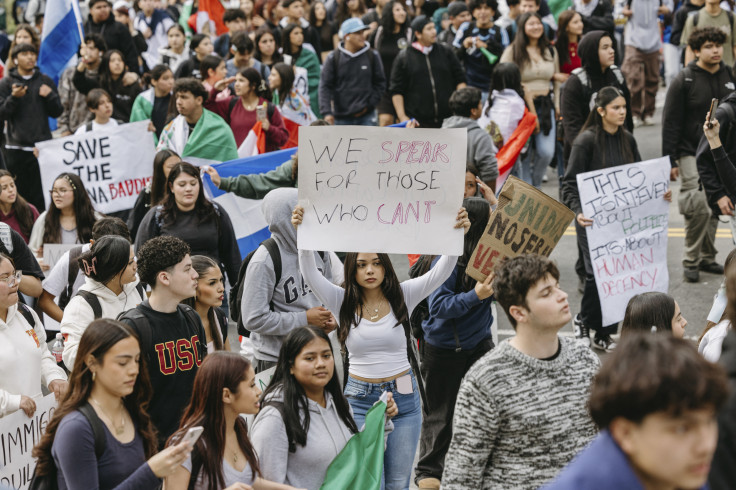
Latino support for President Donald Trump has plummeted, with some figures showing 20-point drop (46% to 26%) in approval rating in the administration's first 100 days. During the 2024 general election cycle, Latinos were a key demographic to cement Trump's victory. Now, in this shifting context, an advocacy foundation is seeking to raise awareness about the importance of properly catering to the demographic, especially those who are not going out to vote.
The Hispanic Access Foundation recently hosted its 5th annual Latino Advocacy Week, where members sought to emphasize the need to empower Latino advocacy at different levels, from educating community members across the country about the United States' democratic process to encouraging active Latinos to run for office.
"We definitely encourage our community to, not only feel empowered and feel like they have the right and the power to run for office at whatever level, but that there are different opportunities to engage at every level for our community," Jessica Godinez, the Foundation's Interim Conservation Director, told The Latin Times.
"When the Latino community understands what their rights are and what those pathways are to influence advocacy and to influence legislation, they are much better equipped to engage and to lead. And when Latinos are mobilize, when all communities mobilize, our voice really transforms, and that can help shape the policies that affect our daily lives," she added.
The week featured a variety of education workshops and virtual presentations, and meetings with congressional representatives, educating participants on what engagement looks like and the options available to them at a time when Latinos are a fixation for the administration.
For Godinez, a week dedicated to this topic is logical at a time of heightened political tension like the one the U.S. is currently experiencing
"Every year about 1.4 million Latinos become eligible to vote. So, every year, that's another million people that are eligible to vote in this country, and due to some barriers, they might not do that and might not engage," she explained. "We're just missing now on a big chunk of our community engaging in this process and being able to participate in our democracy."
Godinez explained that language barriers are some of the biggest obstacles for Latinos who are trying to become active participants in democracy. Another one is lack of access and education which, when experiencing a new and different country and culture, she says, is imperative. She adds that fear under the Trump administration could also become another barrier, though no data has yet been collected on that subject.
"I do think that there is a big sense of fear under the Trump administration, and a lot of times fear itself is a barrier in participating and during a time where we're hearing a lot of rhetoric that is targeting our community, fear [could be a major factor]," she said.
The Latino advocacy week comes at a time when Latinos are seemingly distancing themselves from the Trump administration.
Recent surveys from the Pew Research Center, YouGov/Economist, CNN and Reuters/Ipsos put his approval ratings among Latino voters between 27% and 34%, an abysmal decline from the previous 46% of support he received last fall.
MSNBC News pointed out that this trend could be related to waning support over the president's economic policies, one of the pillars to his campaigns, as his tariffs imposed across the world become increasingly controversial. Another could be what some consider to be a stretch out of powers to quickly deport migrants, such as invoking the wartime Alien Enemies Act to send Venezuelan migrants to a Salvadoran mega-prison.
© 2025 Latin Times. All rights reserved. Do not reproduce without permission.








